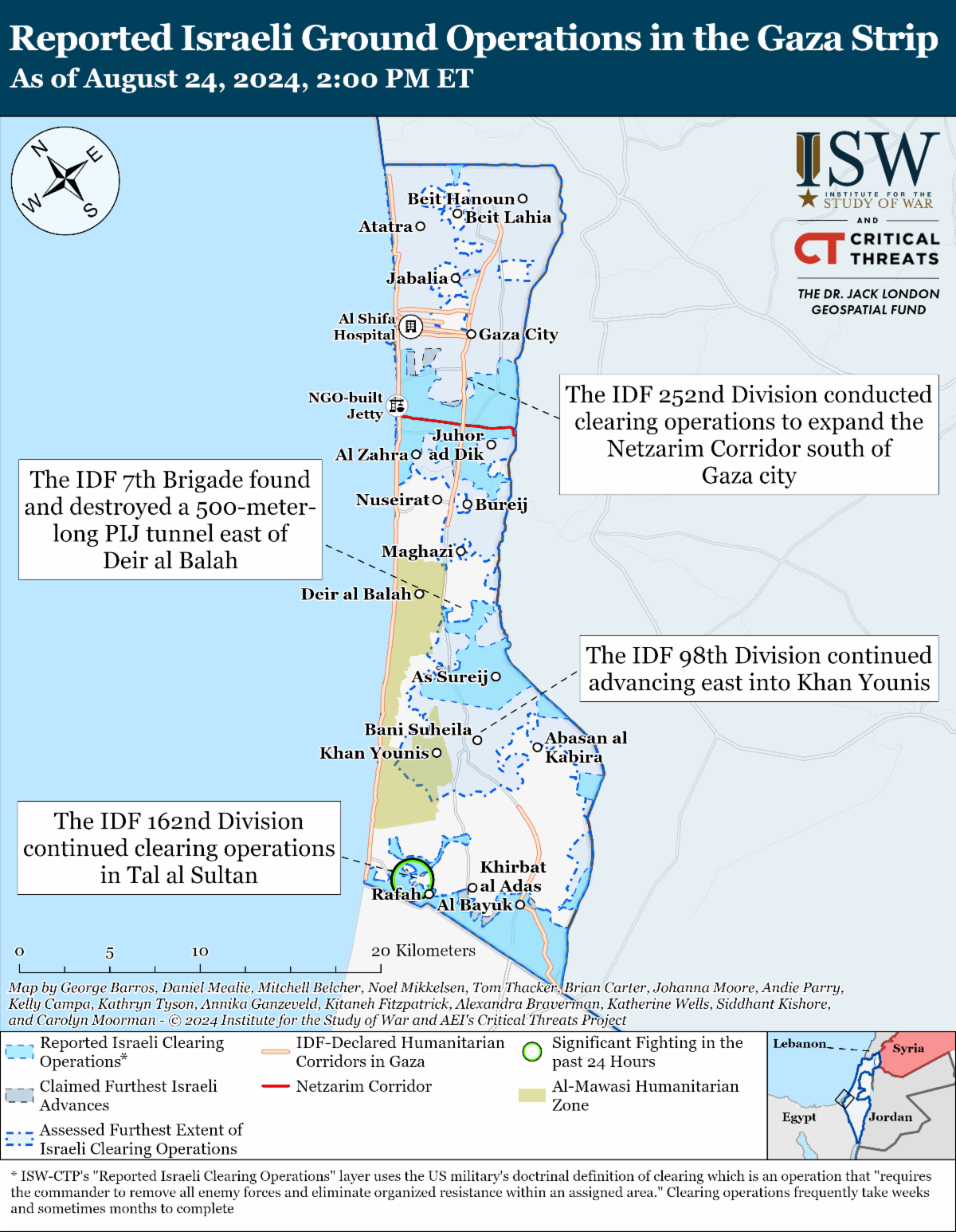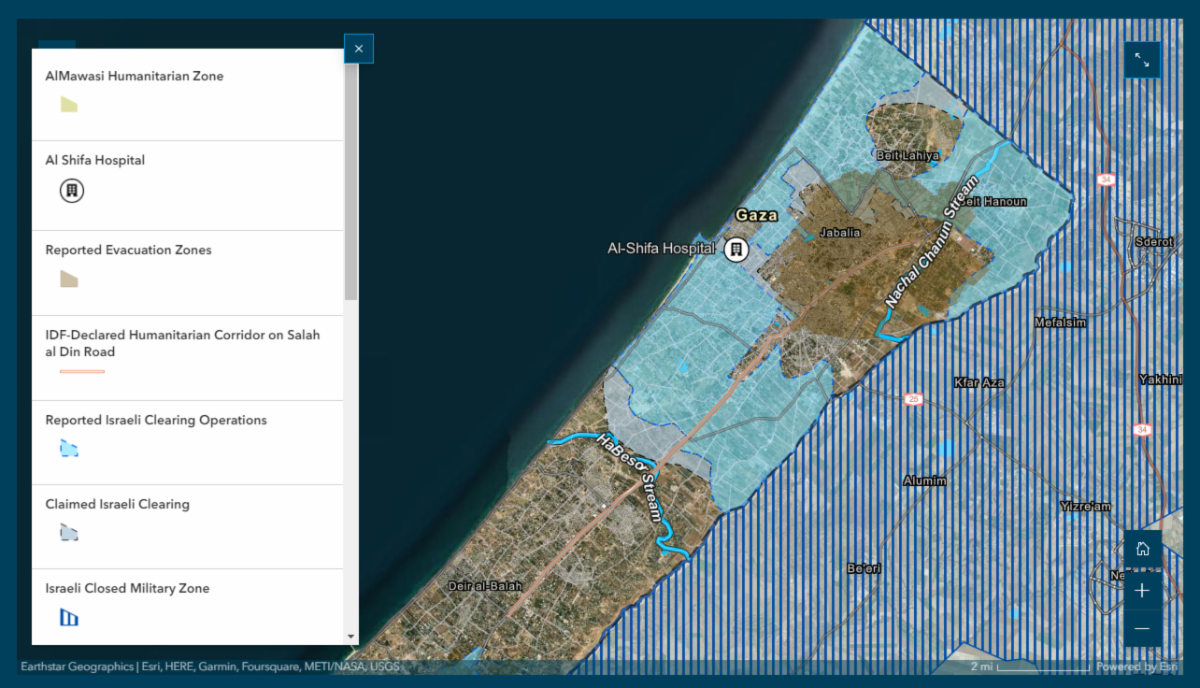A Hamas delegation arrived in Cairo on August 24 to “listen to the results of the negotiations” between US, Egyptian, Israeli and Qatari mediators. Senior Hamas political official Izzat al Rishq announced that a Hamas delegation led by head negotiator Khalil al Hayya will travel to Cairo on August 24. Hamas official Mahmoud Mardawi said that the Hamas delegation is not going to Cairo to negotiate but instead will “listen closely” to the mediators. Two Egyptian security sources told Reuters that the Hamas delegation arrived in Cairo to be close to the negotiations and review the proposals. CIA Director William Burns, senior Biden administration adviser Brett McGurk, Mossad director David Barnea, Egyptian General Intelligence chief Abbas Kamel, and Qatari Prime Minister Mohammed bin Abdulrahman al Thani are also expected to attend the talks in Cairo. US President Joe Biden spoke with al Thani on August 23 and discussed the urgency of concluding the deal under the current US bridging proposal.
Israeli officials said on August 23 that Israeli Prime Minister Benjamin Netanyahu agreed to withdraw Israeli forces from a one-to two-kilometer section of the Philadelphi Corridor during the first phase of the proposed ceasefire-hostage deal. Three anonymous Israeli officials told Axios that President Biden asked Netanyahu to agree to withdraw Israeli forces from the Philadelphi Corridor during the first phase of the deal in their call on August 21. Netanyahu’s insistence on an Israeli military presence along the Philadelphi Corridor, which his office has said is required for achieving Israel’s war objectives, has been one of the most significant sticking points of the negotiations. Israeli officials said that Netanyahu “partially” heeded Biden’s request and agreed to withdraw the IDF from a one-to two-kilometer section of the Philadelphi Corridor adjacent to Tal al Sultan neighborhood. A Netanyahu aide said that Netanyahu only agreed to change one IDF position by “a few hundred meters,” which the aide said would not impact the IDF’s operational control of the corridor. Netanyahu’s “partial” concession allowed the United States to support Israel’s position that Israeli forces remain along most of the corridor during the first phase. Egypt reportedly agreed to deliver updated maps reflecting this change to Hamas. Egypt has maintained its firm refusal of any Israeli presence on the Philadelphi Corridor.
US Chairman of the Joint Chiefs of Staff General Charles Brown Jr. began an “unannounced visit” to the Middle East on August 24. Reuters reported that General Charles Brown Jr. arrived in Jordan on August 24 and will also travel to Egypt and Israel during his visit to “hear the perspectives of military leaders.” General Brown is expected to discuss US perspectives on a regional war between Israel and Iran’s Axis of Resistance as well as further US efforts to strengthen deterrence in the region.
Key Takeaways:
- Hostage-ceasefire negotiations: Hamas sent a delegation to Cairo for further ceasefire-hostage consultations. Israel agreed to withdraw forces from part of the Philadelphi Corridor during the first phase of the proposed deal.
- Iran: The newly appointed Iranian foreign affairs minister reiterated that Iran will retaliate for Israel killing Ismail Haniyeh and other senior Axis of Resistance leaders. IRGC-affiliated media claimed that Israel could not counter a multi-front attack by Iran and the Axis of Resistance.
| 






 [ISW] 러시아의 공세 캠페인 평가, 2024년 8월 24일
[ISW] 러시아의 공세 캠페인 평가, 2024년 8월 24일
 [ISW] 러시아의 공세 캠페인 평가, 2024년 8월 23일
[ISW] 러시아의 공세 캠페인 평가, 2024년 8월 23일